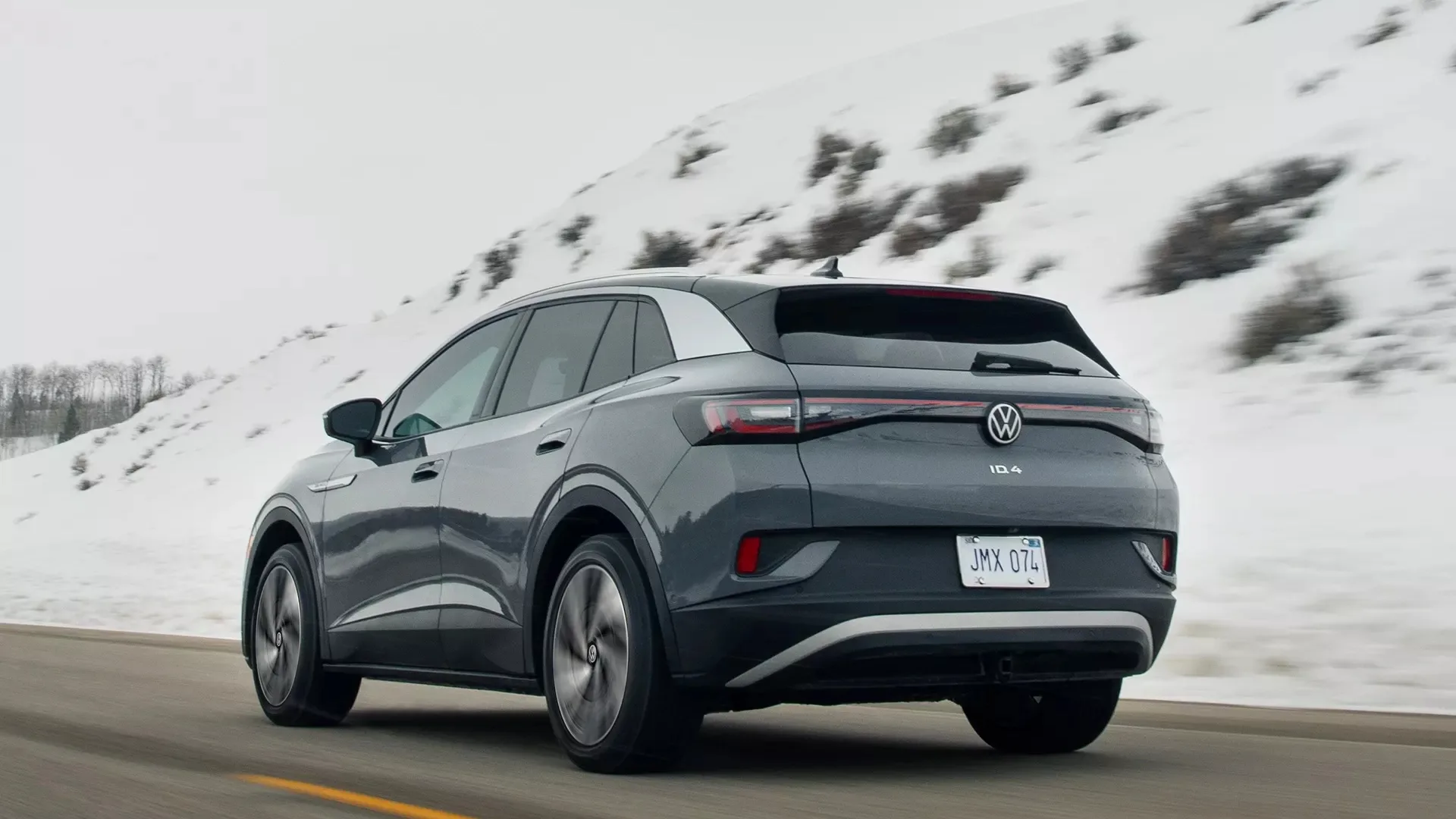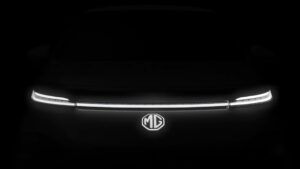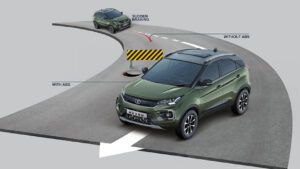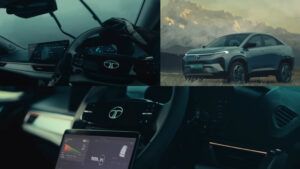In India, the SUV scene is changing as key manufacturers prepare to launch electric versions of their popular models. Volkswagen, for example, has announced its intention to join the league with an electric SUV based on the ID.2all platform. This decision indicates a significant movement towards environmentally friendly transportation in the country’s SUV segment.
Volkswagen’s foray into electric SUVs began with the introduction of the ID.2all, an entry-level electric vehicle. The firm has now revealed a glimpse of an electric SUV based on the ID.2all platform. This SUV, positioned as the electric replacement to the T-Cross (also known as the Taigun in some worldwide markets), is expected to have its near-production debut in 2024, with a global debut likely in 2026.
From what we can deduce from the teasers so far, expect a more upright appearance on the upcoming VW electric SUV. With powerful wheel arches, a distinctive C-pillar, and a sharp rear spoiler. Despite being slightly smaller than the Taigun, the SUV may have a length of 4.1 meters and a wheelbase of 2,600mm.
As mentioned in a recent report, Volkswagen plans to outfit the electric SUV with a 12.9-inch infotainment system and a 10.9-inch digital instrument cluster. The use of tactile buttons for music and temperature settings is noteworthy, emphasizing a balance between current technology and human comfort.
The electric SUV is expected to have a front-wheel-drive configuration powered by a 213bhp engine. Volkswagen intends to provide two battery pack alternatives, 38kWh and 56kWh, to provide flexibility. The bigger battery model intends to deliver an outstanding stated range of roughly 450km, along with a fast 125kW charging capacity, allowing charging from 10% to 80% in just 20 minutes.
Moreover, Volkswagen’s consideration of manufacturing the ID.2all-based SUV in India signifies a strategic move aimed at cost optimization. Leveraging their existing manufacturing plant in the country, this approach holds the promise of making the electric SUV more accessible in the Indian market.
In conclusion, Volkswagen’s venture into the electric SUV space in India carries significant potential. If introduced, this SUV could compete against established players like the Hyundai Creta EV, Maruti eVX, and Tata Curvv EV, thereby contributing to the evolution of sustainable mobility in the Indian automotive landscape. The prospect of Volkswagen’s electric SUV hitting Indian roads presents an exciting glimpse into a greener, more eco-conscious automotive future.








